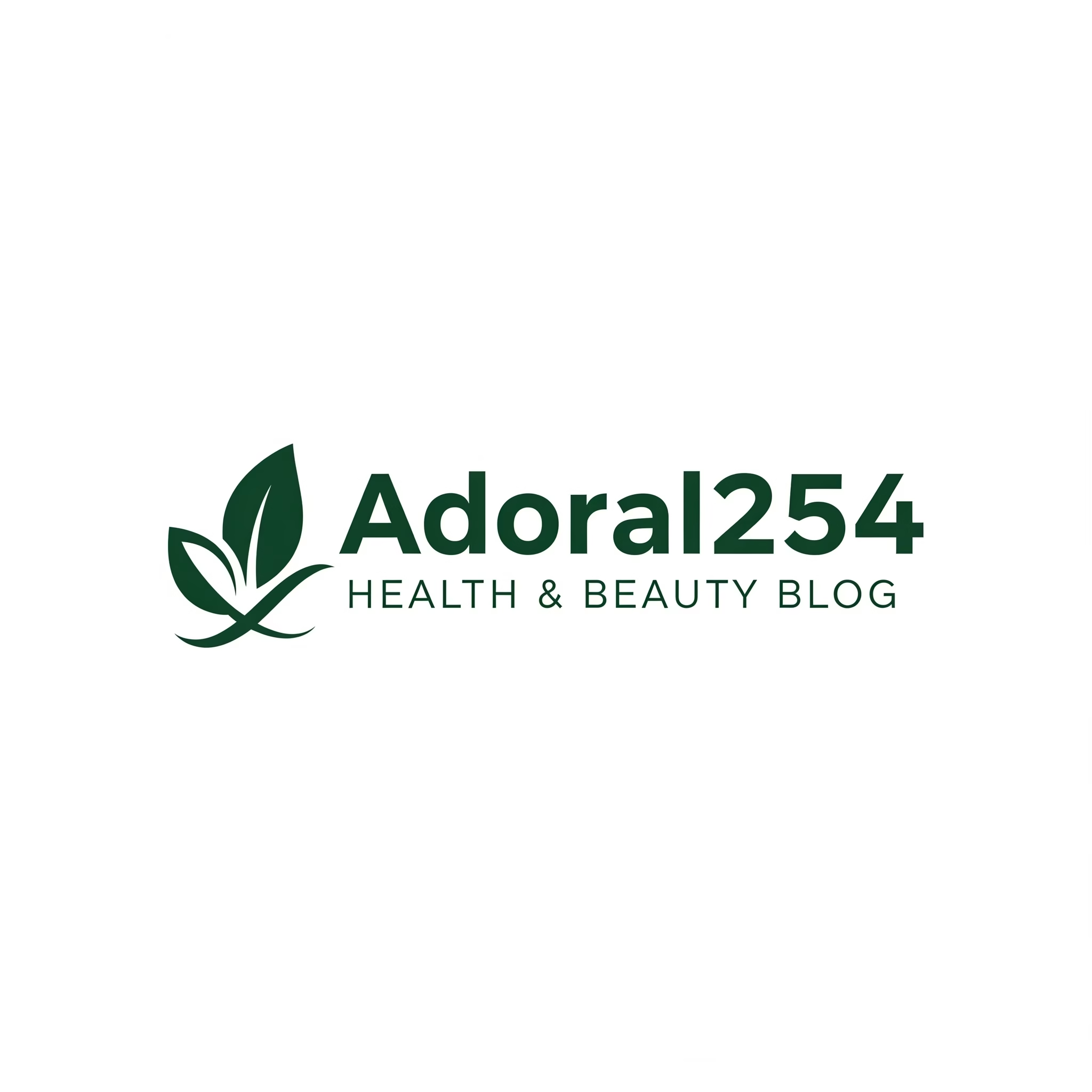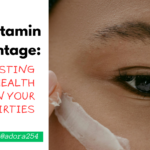Probiotics are becoming more popular for their benefits to skin health, especially for those with acne. They can reduce inflammation, stop breakouts, and make your skin glow. Choosing the Best Probiotics for Acne-Prone Skin is key to clear skin.

Introduction to Best Probiotics for Acne-Prone Skin
Probiotics are good bacteria and yeast that are good for your health, including your skin. They help keep your gut and skin in balance, reducing inflammation and promoting healthy skin. For acne-prone skin, probiotics can lower sebum, prevent clogged pores, and reduce acne scars. Adding the best probiotics to your skincare routine can make your skin clearer and healthier.
Key Takeaways
- Probiotics can help reduce inflammation and prevent breakouts
- Probiotic supplements for acne are a natural and effective way to achieve clear skin
- The best probiotics for acne-prone skin can promote a healthy glow
- Probiotics can help regulate the gut-skin axis
- Incorporating probiotics into your skincare routine can lead to a clearer, healthier complexion
Understanding the Connection Between Probiotics and Skin Health
Probiotics are known for boosting gut health. But they also play a big role in skin health. The gut and skin are connected, and an imbalance in gut bacteria can cause skin problems like acne. Top probiotic strains for skin health help keep gut bacteria in balance.
Studies show that acne-fighting probiotics can reduce inflammation and improve the skin’s barrier. This leads to better skin health and fewer acne symptoms. Probiotics can help in several ways:
- Reducing inflammation and oxidative stress
- Improving the skin’s natural barrier function
- Regulating the gut-skin axis
Knowing how probiotics affect skin health helps people choose the right probiotics. They can be used internally or externally to fight acne and other skin problems. Top probiotic strains for skin health are a valuable tool for better skin.
Best Probiotics for Acne-Prone Skin: Top Recommendations
Finding the right probiotics for acne-prone skin is key. You need both internal supplements and external skincare. Effective probiotics for clear skin balance your gut microbiome. This can improve your skin health.
For probiotic skincare for acne, many options exist. You can find cleansers, moisturizers, and serums with probiotics. Brands like La Roche-Posay and Neutrogena offer products to fight acne and promote healthy skin.
- Oral supplements from brands like Garden of Life or Renew Life
- Probiotic skincare products from brands like La Roche-Posay or Neutrogena
These products have great reviews and ratings. They are known for their effective probiotic strains for clear skin.
Key Probiotic Strains That Combat Acne
Some probiotic strains are better than others for fighting acne. They can reduce inflammation and improve skin health. This helps prevent future breakouts. Knowing which strains are best can help you choose the right probiotics for your skin.
Here are some top probiotic strains for acne-prone skin:
- Lactobacillus species, which have anti-inflammatory effects and boost skin health
- Bifidobacterium strains, which help balance the gut-skin connection and lessen acne
- Other helpful strains like Streptococcus and Enterococcus, which keep the skin’s microbiome in check and stop breakouts
Adding these probiotic strains to your skincare can lead to healthier skin and fewer acne issues. You can use them in supplements or topical products. Probiotics are a great addition to any skincare routine, especially for those with blemish-prone skin.
How to Choose the Right Probiotic Supplement for Your Skin
Choosing the right probiotic supplement for acne-prone skin is key. Look for products with multiple strains of good bacteria. Also, check the CFU (colony-forming units) count. This shows how many live bacteria are in the supplement.
When picking a probiotic, consider a few things:
- The type of strains used, such as Lactobacillus or Bifidobacterium
- The CFU count, which should be guaranteed at the time of manufacture
- Other ingredients that may be beneficial or detrimental to skin health
Read the label well and look for third-party certifications. Be aware of fillers and artificial ingredients that may not be good for your skin. The right probiotic can help your skin health and reduce acne.
Topical Probiotic Products for Acne Treatment
There are many topical probiotic products for acne treatment. They help soothe and calm the skin. Probiotics reduce inflammation and support a healthy skin barrier. You can find probiotic cleansers, moisturizers, and serums to add to your skincare routine.
Benefits of Probiotic Cleansers
Probiotic cleansers balance the skin’s pH and reduce acne. They contain live cultures that break down dead skin cells. This leaves your skin feeling clean and refreshed.
Probiotic Moisturizers and Serums
Probiotic moisturizers and serums keep your skin hydrated. They also lock in probiotic benefits. Ingredients like tea tree oil and green tea extract reduce inflammation and promote healthy skin.
DIY Probiotic Skincare Solutions
If you want to try DIY probiotic skincare, there are many recipes online. Ingredients like plain yogurt and kefir have live cultures. They soothe and calm the skin.
Combining Probiotics with Other Acne Treatments
Treating acne often requires a multi-step approach. Adding acne-fighting probiotics to your skincare routine can be very helpful. Clear skin probiotic supplements work well with other treatments to keep your skin healthy.
Some treatments, like retinoids or benzoyl peroxide, can be used with probiotics. Probiotics help balance your gut and reduce inflammation. These treatments clear pores and kill bacteria on your skin. Together, they can make your skin clearer and healthier.

To improve your skincare routine, follow these tips: * Use a gentle cleanser that keeps your skin balanced * Apply topical treatments as directed and be patient * Take clear skin probiotic supplements as part of your skincare plan By using probiotics with other treatments and making smart lifestyle choices, you can achieve clear, healthy skin.
Common Mistakes to Avoid When Using Probiotics for Acne
Using probiotics for blemish-prone skin can be effective. But, it’s important to avoid common mistakes. These mistakes can make probiotics less effective or cause problems.
Dosage and Timing Considerations
Getting the right dosage of probiotics at the right time is key. Too much or too little can upset the balance of gut bacteria. This imbalance can harm your skin.
Storage and Product Stability
Probiotics are sensitive to temperature, light, and moisture. This can reduce their strength. Keep them in a cool, dry place and check the expiration date to ensure they work well.
Potential Side Effects and Interactions
Probiotics are usually safe, but they can cause side effects like bloating or gas. Be careful about how they might interact with other medicines. This is especially true for people with weak immune systems.
Expected Timeline for Seeing Results
When using effective probiotics for clear skin, it’s important to have realistic expectations. The time it takes to see improvements in acne-prone skin varies. This depends on the severity of acne, the type of probiotic, and your skin type.
Users of best probiotics for acne-prone skin often see initial improvements in a few weeks to months. However, achieving the best results might take longer. The effectiveness also depends on the dosage, how often you use it, and your overall skincare routine.

- Within 2-4 weeks: Noticeable improvements in skin clarity and reduction in acne severity
- Within 6-8 weeks: Significant reduction in acne breakouts and improvement in skin texture
- After 3-6 months: Optimal results, with sustained improvement in skin health and reduced acne severity
Remember, patience is key when using probiotics for acne treatment. Stick to your routine. With consistent use of effective probiotics for clear skin, you’ll see noticeable improvements in your skin over time.
Lifestyle Factors That Enhance Probiotic Benefits for Skin
Getting clear skin with probiotics is more than just supplements. It’s about living a balanced life too. Combining probiotics with a healthy lifestyle boosts their effect on your skin. Eating right, managing stress, sleeping well, and exercising can make your skin glow.
Dietary Considerations for Skin Health
Eating fruits, veggies, and whole grains is key for skin health. Foods like berries and leafy greens fight inflammation. Drinking lots of water keeps your skin elastic and smooth.
Managing Stress for Better Skin
Too much stress harms your skin, causing inflammation and breakouts. Activities like meditation or yoga can help. They reduce stress and make your skin clearer.
Adding these lifestyle habits to your day can make probiotics work better. You’ll get a clearer, healthier skin with the right supplements.
Conclusion: Making Probiotics Work for Your Acne-Prone Skin
The best probiotics for acne-prone skin can change your journey to a clearer, healthier face. You now know how gut health affects your skin. This knowledge lets you add probiotic supplements, topical products, and lifestyle changes to your routine.
Starting with a good probiotic supplement or using probiotics and acne treatment in skincare is key. Be patient and consistent. It takes time to balance gut and skin bacteria, but it’s worth it.
Every skin is different, so finding the right probiotic might take some time. Stay open-minded and listen to your body. If you have concerns, talk to a dermatologist or healthcare provider. With the right approach, probiotics can help you achieve clearer, more radiant skin.
FAQ
What are the best probiotics for acne-prone skin?
The best probiotics for acne include Lactobacillus acidophilus, Bifidobacterium bifidum, and Lactobacillus rhamnosus. These strains help reduce inflammation and improve the skin’s barrier.
How do probiotics help with acne?
Probiotics fight acne by reducing inflammation and balancing the gut microbiome. They also strengthen the skin’s natural barrier, leading to clearer skin.
Can I use both oral probiotic supplements and topical probiotic products for my acne?
Yes, using both oral and topical probiotics can help more. They work together to improve your skin’s health from the inside and outside.
What are the key probiotic strains that are most effective for acne?
Lactobacillus plantarum, Bifidobacterium longum, and Streptococcus thermophilus are key for acne. They have anti-inflammatory and antimicrobial effects that fight acne-causing bacteria.
How do I choose the right probiotic supplement for my acne-prone skin?
Look for supplements with high CFU counts, in the billions. Choose ones with Lactobacillus and Bifidobacterium strains. Also, consider the supplement’s other ingredients to meet your skin needs.
What are some top topical probiotic products for acne treatment?
Top products include probiotic cleansers, moisturizers, and serums. They contain live strains or probiotic-derived ingredients to soothe inflammation and support a healthy skin barrier.
Can I use probiotics alongside other acne treatments?
Yes, probiotics can be used with other treatments like creams, medications, and lifestyle changes. They can make these treatments more effective and offer a holistic approach to managing acne.
What are some common mistakes to avoid when using probiotics for acne?
Avoid not following the recommended dosage and improper storage. Also, be aware of potential interactions with medications. Be patient and give probiotics time to work.
How long does it take to see results from using probiotics for acne?
Results can take 4-12 weeks with consistent use. The time frame varies based on acne severity, skin type, and individual factors.
What lifestyle factors can enhance the benefits of probiotics for acne-prone skin?
Eating a balanced diet, managing stress, getting enough sleep, and exercising regularly can boost probiotic benefits. These habits support overall skin health.





**mindvault**
mindvault is a premium cognitive support formula created for adults 45+. It’s thoughtfully designed to help maintain clear thinking
**sugarmute**
sugarmute is a science-guided nutritional supplement created to help maintain balanced blood sugar while supporting steady energy and mental clarity.
**gl pro**
gl pro is a natural dietary supplement designed to promote balanced blood sugar levels and curb sugar cravings.
**vittaburn**
vittaburn is a liquid dietary supplement formulated to support healthy weight reduction by increasing metabolic rate, reducing hunger, and promoting fat loss.
**prodentim**
prodentim an advanced probiotic formulation designed to support exceptional oral hygiene while fortifying teeth and gums.
**glucore**
glucore is a nutritional supplement that is given to patients daily to assist in maintaining healthy blood sugar and metabolic rates.
**synaptigen**
synaptigen is a next-generation brain support supplement that blends natural nootropics, adaptogens
**sleep lean**
sleeplean is a US-trusted, naturally focused nighttime support formula that helps your body burn fat while you rest.
**nitric boost**
nitric boost is a dietary formula crafted to enhance vitality and promote overall well-being.
**prostadine**
prostadine is a next-generation prostate support formula designed to help maintain, restore, and enhance optimal male prostate performance.
**wildgut**
wildgutis a precision-crafted nutritional blend designed to nurture your dog’s digestive tract.
**mitolyn**
mitolyn a nature-inspired supplement crafted to elevate metabolic activity and support sustainable weight management.
**zencortex**
zencortex contains only the natural ingredients that are effective in supporting incredible hearing naturally.
**yu sleep**
yusleep is a gentle, nano-enhanced nightly blend designed to help you drift off quickly, stay asleep longer, and wake feeling clear.
**breathe**
breathe is a plant-powered tincture crafted to promote lung performance and enhance your breathing quality.
**pinealxt**
pinealxt is a revolutionary supplement that promotes proper pineal gland function and energy levels to support healthy body function.
**energeia**
energeia is the first and only recipe that targets the root cause of stubborn belly fat and Deadly visceral fat.
**prostabliss**
prostabliss is a carefully developed dietary formula aimed at nurturing prostate vitality and improving urinary comfort.
**boostaro**
boostaro is a specially crafted dietary supplement for men who want to elevate their overall health and vitality.
**potentstream**
potentstream is engineered to promote prostate well-being by counteracting the residue that can build up from hard-water minerals within the urinary tract.
**hepatoburn**
hepatoburn is a premium nutritional formula designed to enhance liver function, boost metabolism, and support natural fat breakdown.
**hepatoburn**
hepatoburn is a potent, plant-based formula created to promote optimal liver performance and naturally stimulate fat-burning mechanisms.
**flowforce max**
flowforce max delivers a forward-thinking, plant-focused way to support prostate health—while also helping maintain everyday energy, libido, and overall vitality.
**prodentim**
prodentim is a forward-thinking oral wellness blend crafted to nurture and maintain a balanced mouth microbiome.
**neurogenica**
neurogenica is a dietary supplement formulated to support nerve health and ease discomfort associated with neuropathy.
**cellufend**
cellufend is a natural supplement developed to support balanced blood sugar levels through a blend of botanical extracts and essential nutrients.
**revitag**
revitag is a daily skin-support formula created to promote a healthy complexion and visibly diminish the appearance of skin tags.
Can you be more specific about the content of your article? After reading it, I still have some doubts. Hope you can help me.
Downloaded the vf555app the other day and gotta say, it’s pretty smooth. Easy to navigate and plays well on my phone. If you’re into mobile gaming, I’d recommend checking it out: vf555app
I don’t think the title of your article matches the content lol. Just kidding, mainly because I had some doubts after reading the article. https://accounts.binance.com/lv/register?ref=SMUBFN5I
Your article helped me a lot, is there any more related content? Thanks! https://accounts.binance.com/el/register?ref=DB40ITMB
Can you be more specific about the content of your article? After reading it, I still have some doubts. Hope you can help me.
Spintimeph, ah? Not bad, not bad! I’ve spent a few evenings there. It’s fun to kill some time. Give spintimeph a whirl.
Alright, 188betlinkvao looks like a decent place, easy to navigate. See for yourself at 188betlinkvao
jlboss https://www.jlbossw.net
jlbet https://www.jlbetal.com
Need to quickly login via vipjililogin, hope there will be some exclusive offers today! Check it out for yourself: vipjililogin
Downloading vn68apk now. Fingers crossed it’s a good one. Get yours and try to win here: vn68apk
Yo, checked out vz66 recently. Pretty solid, decent selection of games and the site runs smoothly. Nothing mind-blowing, but definitely worth a look. Give vz66 a try – you might find something you like.
Can you be more specific about the content of your article? After reading it, I still have some doubts. Hope you can help me.
Can you be more specific about the content of your article? After reading it, I still have some doubts. Hope you can help me. https://accounts.binance.info/en-ZA/register-person?ref=B4EPR6J0